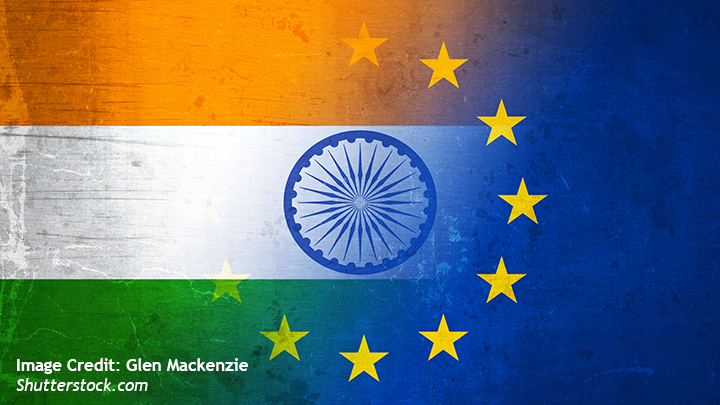Maritime Road to 2030: EU’s Indo-Pacific Footprint and India

Jagannath Panda
Summary:
Europe’s role and presence in the Indo-Pacific has become a matter of great strategic importance in the current global politics. China’s disruptive role in the region, especially with its hardening stance towards Taiwan and burgeoning relations with Russia, have forced a shift in the European Union’s (EU) outlook towards the Indo-Pacific. With the Indian Ocean being a gateway to the region, the EU’s Indo-Pacific outlook and Maritime Security Strategy (MSS) require careful scrutiny.
This policy paper looks at the EU’s policy frameworks – like the MSS, Strategic Compass and the Indo-Pacific strategy – to understand their complementarities and impact on its presence in the Indo-Pacific domain. Through a review of such an integrated EU approach, which emphasizes regional maritime multilateralism alongside bilateral frameworks, the paper outlines key trends that Brussels will need to contend with over the coming decade, including dissonance over the China factor and collaboration with regional middle powers.
The paper highlights that moving forward, the EU must focus on broadening partnerships in the Indian Ocean, and collaboration with states like India, as well as greater participation in regional multilateral forums, is critical. India-EU maritime diplomacy is at a nascent stage and requires continued impetus; the paper outlines key policy recommendations for such India-EU cooperation. The EU’s Indo-Pacific approach is constructive, inclusive and non-confrontational. Whether it moves beyond its limited scope and translates into meaningful action remains to be seen.
The publication was originally published at The Hague Centre for Strategic Studies.
Related Publications
-
Navigating the Indo-Pacific: How Australia and the EU Can Partner for Peace, Stability, and Prosperity
To navigate the choppy waters of the Indo-Pacific, the EU and Australia must be on the same wavelength regarding shared interests in rules, values, and an open and liberal economic […]
-
Trade, Connectivity and Supply Chains in EU-India Relations
In the decade and a half since 2007 when the EU and India first started their FTA negotiations, the world economic order has undergone a sea change. During that period, […]
-
Needed, a Framework to Protect Undersea Cables
In the data-driven world we live in, submarine cables are the arteries that connect nation-states and their people in literally every human activity, including trade, commerce, entertainment, and social interactions. […]
-
ISDP Annual Report 2023
ISDP’s Annual Report for the year 2023. We look back on 2023, a year in which tensions and conflicts captured the strategic space in ISDP’s focus areas, making headlines around […]
-
India-Middle East-Europe Economic Corridor: Will It Get Subsumed by Its Grand Vision?
The recently concluded Group of Twenty (G20) Summit in New Delhi under India’s presidency was, undoubtedly, a crowning moment for India. From providing the G20 with new relevance among the […]




